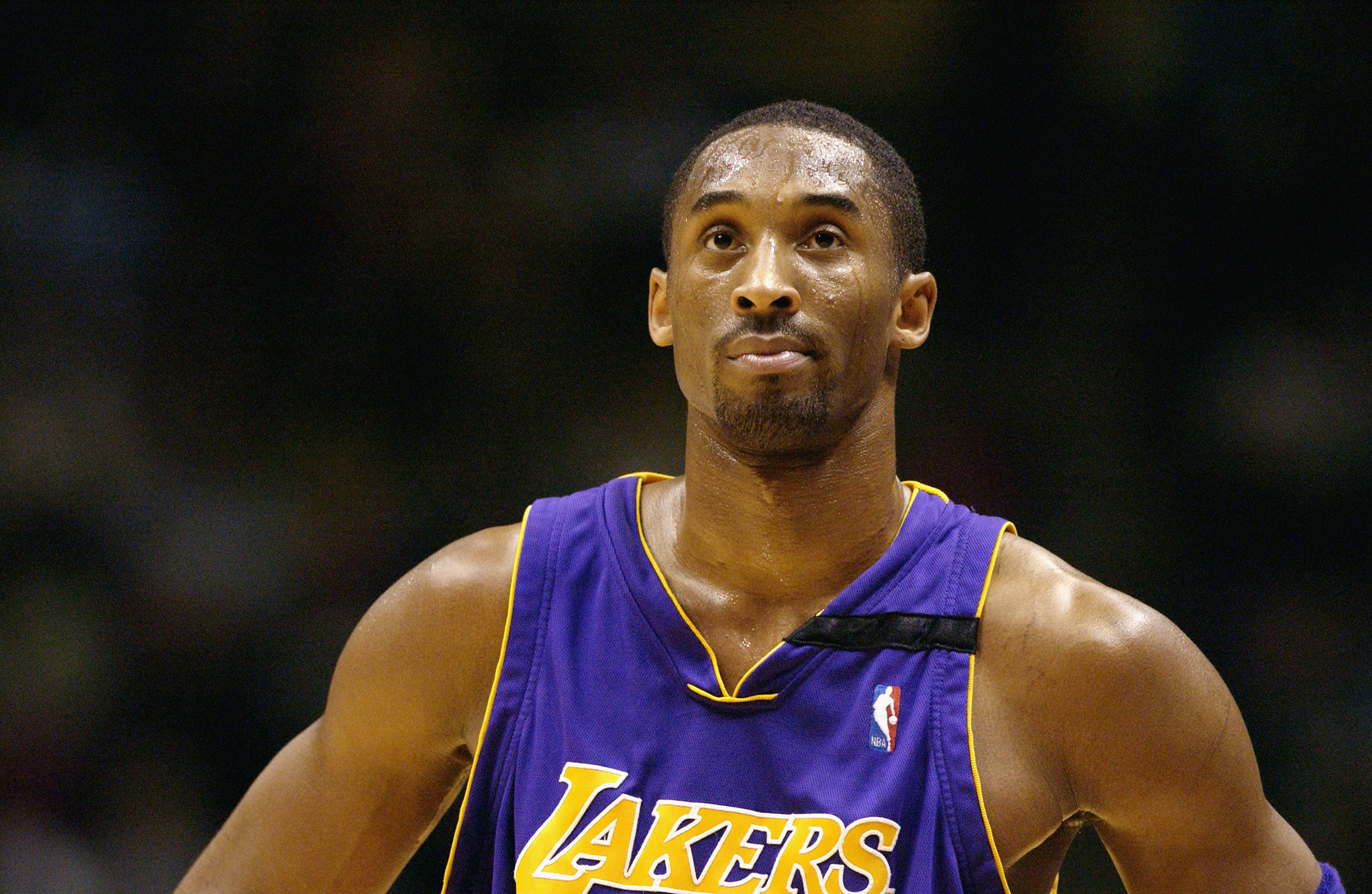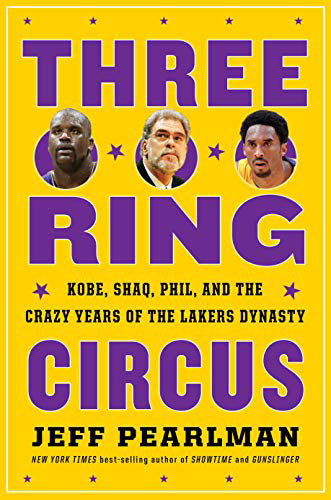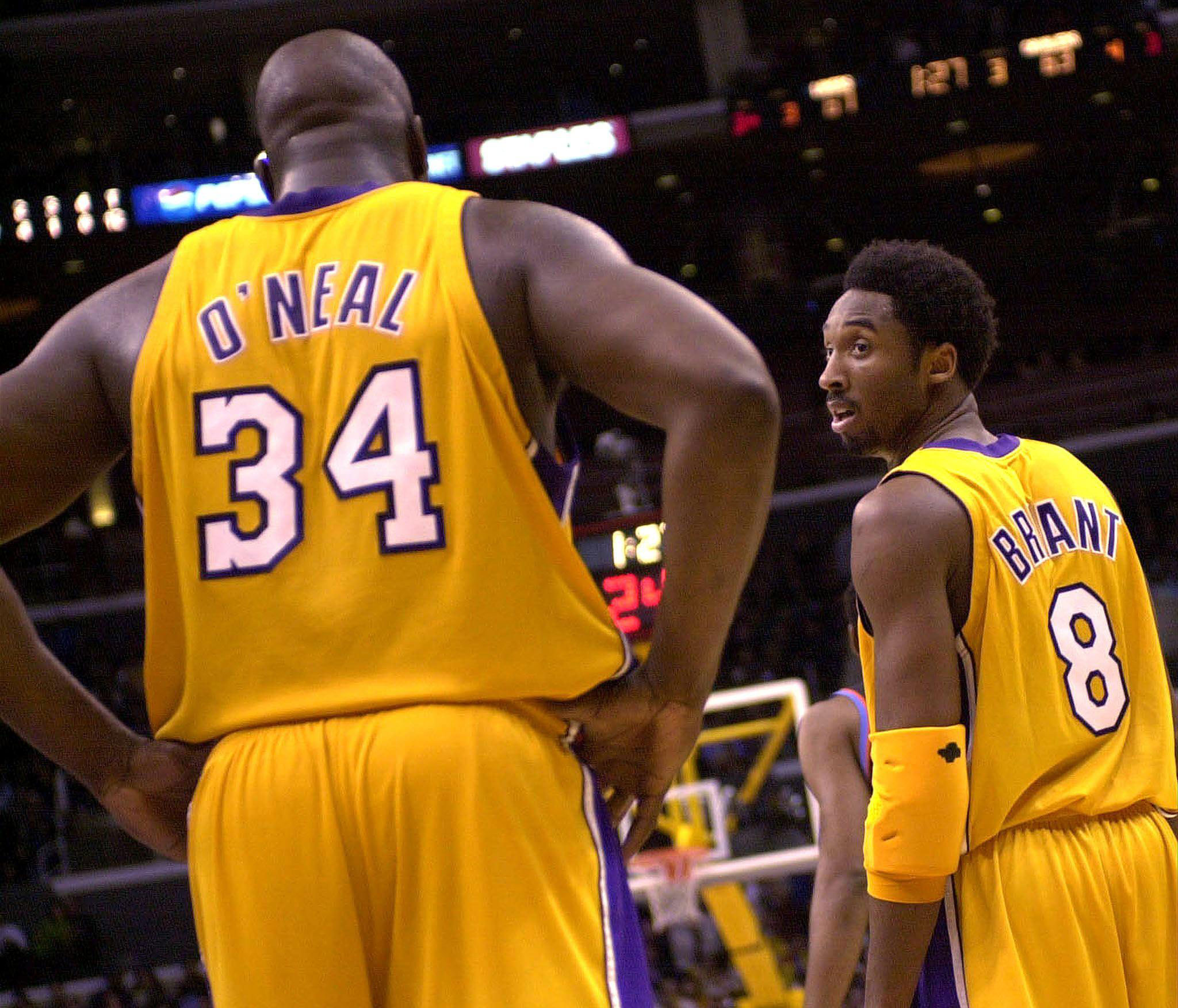
Author Jeff Pearlman is under no illusions about how some people may react to his new book, Three-Ring Circus: Kobe, Shaq, Phil, and the Crazy Years of the Lakers Dynasty. The exhaustively reported and eminently readable book chronicles the combustable Kobe Bryant-Shaquille O’Neal partnership in Los Angeles that led the Lakers to three consecutive NBA titles from 2000 to 2002.
Bryant’s staunchest fans—still in grieving his tragic Jan. 26 death in a helicopter crash that also killed his daughter Gianna and seven others—may despise it. Three-Ring Circus, which covers the early years of Bryant’s NBA career (1996-2004), depicts ugly incidents from the superstar’s past. Through roughly 300 interviews, including talks with O’Neal, other former Lakers teammates like Rick Fox and Bryant’s coach, Hall of Famer Phil Jackson, the Bryant who emerges in the book is mean, aloof and impossible to coach. In other words, Three-Ring Circus shares the unsparing truth about Bryant’s early NBA years.
It’s a truth that’s familiar to Bryant followers; everyone knows he was arrogant and difficult to deal with in his younger days. Still, it’s a truth that many won’t appreciate seeing spelled out, in detail, so soon after his death. It doesn’t fit the narrative that emerged after the helicopter crash: Bryant as a dedicated basketball craftsman who possessed a focus and intensity he dubbed the “Mamba Mentality,” which willed him to all-time greatness. Bryant as a caring father, as a champion of women’s sports, as a Renaissance man who won an Oscar. Three-Ring Circus sits in a precarious position: It’s a book reported and written before a beloved celebrity’s tragic death, that may ring insensitive due to circumstances beyond the author’s control.
On social media, and in an author’s note included in the book, Pearlman pleads with readers not to interpret his work as an opportunistic takedown of Bryant’s legacy. “The Kobe Bryant of 1996 to 2004 is not the Kobe Bryant of 2005 to January 26, 2020,” Pearlman writes. “He was not then the contemplative adult who raved of having four daughters. He was not then the doting husband. He was not then the Academy Award winner. He was not yet comfortable in his own skin.”
Pearlman, however, knows such perspective may get lost in the conversation around the book. “When you’re in the media, you think everyone hears what you’re saying,” Pearlman tells TIME. “So, all right, I’m going to put it out there, so everyone knows I finished his book before he died. You’re talking to 4% of the people. The other 96% just see some guy who capitalized on his death. I really hate that.”

A few of the unflattering incidents depicted in Three-Ring Circus involve Bryant’s treatment of his peers. In 2003, Eric Chenowith, who played collegiately at the University of Kansas, was in Lakers training camp in Hawaii, trying to make the team. Pearlman reports in the book that during an off-day outing, Chenowith felt a palm push into the back of his head. “Rook, you better get me my motherf-cking ice cream,” Bryant told him. But Chenowith, drafted by the New York Knicks two years earlier, wasn’t fresh out of college: he had played in the NBA Developmental League the two seasons before. He felt Bryant was just trying to humiliate him; and yet he also felt like he had no choice but to walk over to an ice cream truck and fetch Bryant, already a three-time champ, some dessert. “You better f-cking run!” Bryant said. “Don’t walk. Run.”
“Kobe was a complete prick,” Chenowith told Pearlman in an interview for the book before Bryant’s death. “Not only is he a douchebag, he’s a douchebag who’s a prick. If he knows he can get something from you, he’ll treat you with respect. If there’s nothing in it for him, he can’t give a sh-t.”
The book highlights the critical opinions of those around Bryant at the time. Jackson is quoted as calling Bryant a “juvenile narcissist.” Over the years, O’Neal has tried to downplay his feuding with Bryant during their Lakers days. And while the two superstars did go a long way toward patching things up as the years went by, Pearlman reports that O’Neal, at times, abhorred his younger teammate. “The truth is nobody wanted to play with Kobe,” O’Neal says in the book, describing the dynamics of the late-1990s Lakers, who struggled to establish themselves in the Western Conference. During one off-season pickup game, they came to blows. Former NBA center Olden Polynice told Pearlman he grabbed O’Neal in an attempt to keep the peace. “And I’m telling you, if Shaq got loose he would have killed Kobe Bryant,” Polynice says in Three-Ring Circus. “I am not exaggerating… He wanted to end Kobe’s life in that moment.”
READ MORE: ‘He Was Going to Do Great Things.’ Why Many Believed the Best Was Ahead of Kobe Bryant
Pearlman spares no detail in chronicling Bryant’s 2003 sexual assault arrest, which obituaries largely glossed over. Bryant was charged with sexually assaulting a then 19-year-old woman in a Colorado hotel room: prosecutors dropped the criminal case before trial, citing the accuser’s unwillingness to testify. The woman filed a lawsuit against Bryant; it ended in a settlement. O’Neal despised Bryant so much, according to Three-Ring Circus, that during one team flight from Hawaii where Bryant was not present, O’Neal produced a facetious rap verse about Bryant’s involvement in the case, shocking a few teammates who heard his freestyle lyrics.
Hearing of these stories in 2020 may feel strange. But even before Bryant’s death, Three-Ring Circus had a planned September 2020 release date. The book was finished, save for the author’s note, before Jan. 26; Pearlman says he rejected suggestions from friends that he move the publication sooner so it could arrive while Bryant’s death was in the news. He considered pushing the date back further, but ultimately told his agent to stick with September, deciding that waiting a few more months wouldn’t make much of a difference.

Pearlman knows that if he had started reporting this book after Bryant’s death, sources would not have been as candid. “It’s impossible,” he says. “Two days before Kobe died, a good number of these people were not Kobe Bryant fans, if we’re being honest. And two days after he died, he was the greatest person to walk the earth. That’s how it works. We try to be respectful people.”
One source called Pearlman after the helicopter crash, expressing reservations about how his candor would be received in the book. Pearlman told his source there really wasn’t much he could do. “With biographies, you have two choices,” Pearlman says. “You can write true, honest, real chronicles, or you can delve into the mythology and the pop and pulp. I’m writing a true story. Presumably someone, someday, will want to go back and know what this period was like. And that’s my job, to chronicle it accurately and honestly.”
Even so, he recognizes the hurt that rehashing bad memories may cause Bryant’s fans, and particularly his family. “What his family has been through is unspeakable,” he says. “I was heartbroken about Kobe’s death. And I am not exaggerating that. But it’s just a book about an era in basketball. And it doesn’t take away anything that guy accomplished—it doesn’t take away from what he did after basketball.”
And he’s right. Three-Ring Circus is a valuable addition to the Kobe Bryant canon—deeply reported and unflinchingly honest. By documenting Bryant’s youthful immaturity and harmful actions, Pearlman offers a fuller picture of a beloved but complicated man.
More Must-Reads from TIME
- Cybersecurity Experts Are Sounding the Alarm on DOGE
- Meet the 2025 Women of the Year
- The Harsh Truth About Disability Inclusion
- Why Do More Young Adults Have Cancer?
- Colman Domingo Leads With Radical Love
- How to Get Better at Doing Things Alone
- Michelle Zauner Stares Down the Darkness
Write to Sean Gregory at sean.gregory@time.com